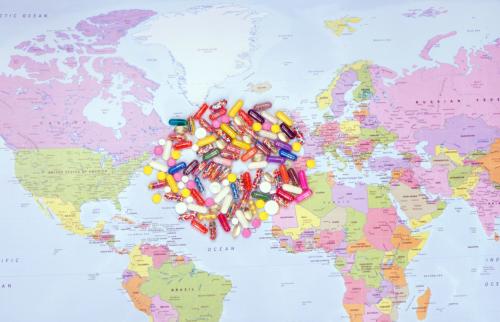

10:00 am EDT - 11:30 am EDT
Past Event
10:00 am - 11:30 am EDT
1775 Massachusetts Ave., NW
Washington, DC
Over the past decade, certain regions of Mexico have faced ferocious violence and escalating corruption tied to drug trafficking syndicates and other related organized crime. The Mexican government has fought to establish effective security and socioeconomic policies to combat crime and the allure of the drug trafficking organizations, and has worked to reform police forces and the justice system. Under the weight of these challenges, relations between the U.S. and Mexico have become strained, and will only intensify as the 2012 U.S. presidential election nears. What’s more, Mexico’s crime has spilled over into Central America as well.
On September 22, the Latin America Initiative at Brookings hosted a discussion on attempts to tackle drug trafficking and organized crime in Mexico, and released Brookings Fellow Vanda Felbab-Brown’s new report, “Calderón’s Caldron: Lessons from Mexico’s Battle Against Organized Crime and Drug Trafficking in Tijuana, Ciudad Juárez, and Michoacán.” Panelists included Brookings Senior Fellow Kevin Casas-Zamora; Andrew Selee of the Woodrow Wilson Center for International Scholars; and John Bailey of Georgetown University. Senior Fellow Ted Piccone, deputy director of Foreign Policy at Brookings, provided introductory remarks and moderated the discussion.
After the program, the panelists took audience questions.




Samuel R. Bagenstos, Richard G. Frank, Kristi Martin, Rachel Sachs, Christen Linke Young
July 14, 2025

Christen Linke Young, Richard G. Frank, Rachel Sachs
July 9, 2025

Richard G. Frank, Rachel Sachs, Christen Linke Young
July 2, 2025